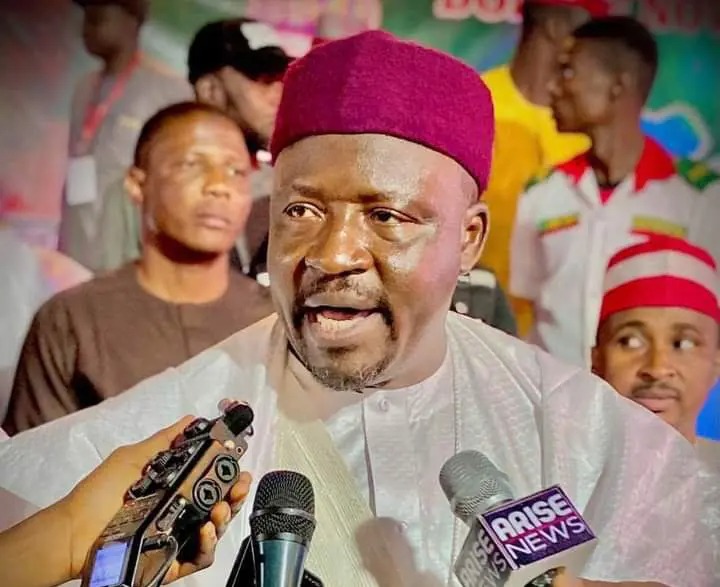The New Nigerian Peoples Party (NNPP) in Kano State is embroiled in a leadership crisis, with two factions claiming control of the party structure. This internal struggle has spilled into the public domain, culminating in the purported suspension of prominent members, including Senator Abdulrahman Kawu Sumaila and three members of the House of Representatives. The suspensions, announced by Hashimu Dungurawa, who claims to be the state NNPP Chairman, have been dismissed as inconsequential by Senator Mas’ud El-Jibril Doguwa, who asserts his own legitimacy as the authentic state chairman. This power struggle highlights the deep divisions within the party and raises questions about the true locus of authority within the NNPP in Kano.
The crux of the dispute lies in the differing allegiances of the two factions. Dungurawa’s faction appears aligned with the Kwankwasiyya movement, a political group led by Rabiu Kwankwaso, a prominent figure in Kano politics. Doguwa’s faction, on the other hand, pledges allegiance to Boniface Amieblam, who leads a separate faction of the NNPP. The suspension of Sumaila and the three House members, ostensibly for anti-party activities, appears to be rooted in their shifting loyalties away from the Kwankwasiyya movement. Doguwa argues that Dungurawa lacks the authority to discipline these members, as his claim to the chairmanship is illegitimate.
Doguwa’s argument rests on the premise that the NNPP is formally recognized by the Independent National Electoral Commission (INEC) under a specific party logo, commonly referred to as the “fruit basket” logo. He asserts that his faction operates under this recognized structure, while Dungurawa’s faction does not. Doguwa contends that since Sumaila and the other suspended members belong to the NNPP under the legitimate “fruit basket” logo, Dungurawa has no jurisdiction over them. He further dismisses Dungurawa as a member of the Kwankwasiyya movement, which he characterizes as a mere association and not a political party, thus lacking the power to suspend members of a registered political party.
The ongoing conflict within the NNPP Kano chapter underscores the challenges faced by nascent political parties in Nigeria. The struggle for control of party machinery and resources often leads to factionalism and internal strife. This internal wrangling can weaken the party’s overall effectiveness and undermine its ability to mobilize support and contest elections effectively. The NNPP’s experience in Kano serves as a microcosm of the broader challenges facing the Nigerian political landscape, where personality clashes and power struggles often overshadow ideological debates and policy discussions.
The situation in Kano also raises questions about the role of external political movements, such as Kwankwasiyya, in influencing party politics. The apparent intertwining of the Kwankwasiyya movement with the NNPP in Kano underscores the complex relationship between political parties and the broader political ecosystem in Nigeria. The loyalty of party members often appears divided between formal party structures and allegiance to influential political figures and their associated movements. This dynamic can create confusion and instability within parties, as seen in the NNPP’s case.
As the NNPP grapples with this internal crisis, the silence of Rabiu Kwankwaso, the leader of the Kwankwasiyya movement, adds another layer of complexity to the situation. Kwankwaso’s influence within the NNPP in Kano is undeniable, and his failure to publicly address the dispute leaves room for speculation and further fuels the uncertainty surrounding the party’s leadership. The resolution of this conflict is crucial for the NNPP’s future prospects in Kano, as a prolonged power struggle could damage the party’s image and erode public confidence. The party’s ability to resolve this internal crisis effectively will be a test of its organizational strength and its commitment to internal democracy.


